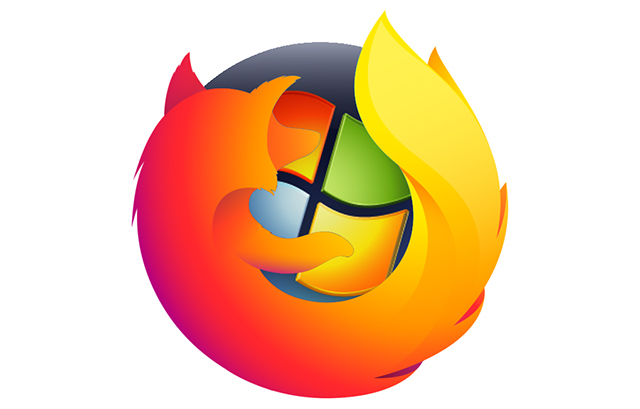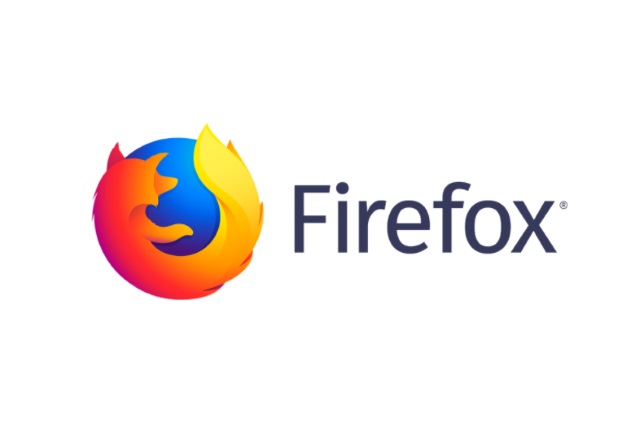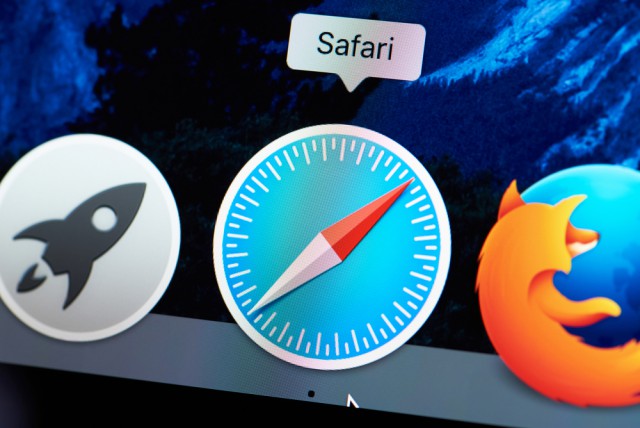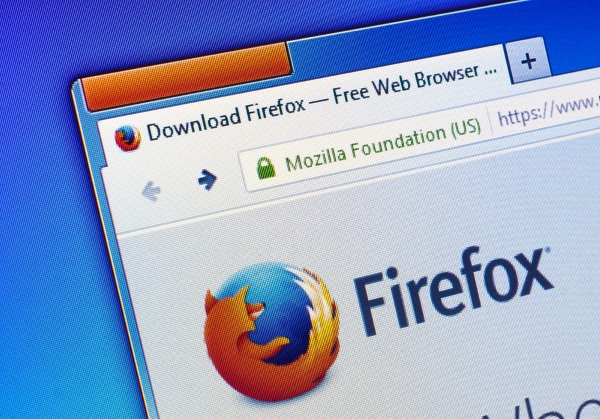
Mozilla's Facebook Container extension keeps your Firefox browsing isolated from Facebook
Facebook has been completely inescapable in the news over the last couple of weeks, and there are increasing concerns that the social network is all but inescapable online generally. In the wake of recent privacy concerns about Facebook, Mozilla -- already petitioning for Mark Zuckerberg to do more -- has launched a new extension for Firefox that helps to keep your browsing private.
Called "Facebook Container", the add-on has been designed to make it much harder for Facebook to track your web browsing when you're not using the social network.

Mozilla's 2018 roadmap shows ad blocking (of sorts) is coming to Firefox
Ads may be central to the running of the web, but that doesn't mean people want to see them. Ad blocking is more popular than ever, and it's something that's been noted by Mozilla.
Revealing its 2018 roadmap for Firefox, the company says that an ad blocker is being added to the web browser -- albeit a limited one. On top of this, additional privacy controls are on the cards, as is a tool to block auto playing videos, and a breach alert system.

Mozilla Firefox Quantum available as Snap for Linux
If you use Linux on the desktop, there is no shortage of great web browsers from which to choose. For instance, popular options like Firefox, Chrome, and Opera are all available. Thankfully, Microsoft Edge is nowhere to be found!
Firefox is probably the most appropriate web browser to use on Linux. Why? Well, Mozilla’s open source focus is largely aligned with the Linux community. Today, Firefox Quantum becomes even more attractive to Linux users as it is now available as a Snap.

Firefox's 'master password' system can be easily bypassed using brute force
If you're a Firefox user, it's highly possible that you use the browser to store your login usernames and passwords for the sake of ease. Supposing you're a little security conscious, you may well have enabled the 'master password' function to prevent unauthorized access to your password database.
Well, there's a little bad news. It's nowhere near as secure as you may have thought. Wladimir Palant -- the guy behind the AdBlock Plus extension -- found that the system, which is used by both Firefox and Thunderbird, can be very easily brute-forced, leaving passwords vulnerable to malware and hackers.

Firefox Quantum 59 boosts page loading times, adds options for blocking intrusive website requests
Mozilla has released Firefox Quantum 59.0 for desktop, along with Firefox for Android 59.0 rolling out imminently.
The new version continues to refine performance with the promise of faster page-loading times, while the Home page gains one new customizable feature. Other highlights include improvements to the built-in screenshots tool and the ability to block website requests for advanced access or notifications.

You'll be able to disable and hide Firefox Sync in Firefox 60
For some people, Firefox Sync is a great way to synchronize browser settings, add-ons, bookmarks and so on between computers. For others it's a privacy nightmare and a massive annoyance.
Starting with Firefox 60, Mozilla is making it possible to not only disable the feature, but also hide it. This might seem like a minor change, but for anyone irritated by the mere presence of Firefox sync, it's something that should have happened sooner.

Firefox Quantum 58 builds on performance gains, improves screenshots tool
Mozilla is rolling out Firefox Quantum 58.0 for desktop, along with Firefox for Android 58.0. It arrives over two months after the landmark release of Firefox Quantum 57.0.
The latest build focuses on performance and security, while an update to Firefox’s user profile feature means it’s no longer backwards compatible with previous versions. Android users also gain the ability to pin favorite websites to their home screen for use like native apps.

Firefox: Windows 7 way more popular than Windows 10
Depending on which analyst firm you believe, Windows 10 will either finally overtake Windows 7 this month, or it won’t. Either way, the newest OS is narrowing the gap.
However, according to the Firefox Hardware Report, a public weekly survey of the hardware and software used by everyone running the release channel desktop build of Mozilla's web browser, Windows 10 still has a long way to go until it catches up to Windows 7.

Microsoft's WebTV returns as Firefox for Amazon Fire TV
Surfing the web on your television is hardly new. In fact, WebTV (later renamed MSNTV) launched over 20 years ago. If you don't remember that device, it was essentially a box that connected to a television and let people surf the web and access email. It was marketed towards those that were averse to buying or using a full-fledged computer, such as grandma and pop-pop. Over time, its popularity decreased, and ultimately, the service was shutdown by its eventual owner -- Microsoft.
Accessing a web browser on a TV-connected device remains an easy affair, but starting today, it may be even easier. You see, the Firefox web browser is now available for the low-cost Amazon Fire TV and Fire TV Stick. In other words, if you know someone who doesn't want a computer but could benefit from occasional web browsing, Amazon's media box may be a great option. I guess you could say that Firefox for Amazon Fire TV is sort of the new WebTV!

Mozilla Firefox 57 unveils new speedy Quantum browsing engine, revamps user interface
Mozilla has placed Firefox 57.0 on its servers for download, ahead of its official release tomorrow. Also due imminently is Firefox for Android 57.0. The new release sees the debut of Mozilla’s next-generation browsing engine, Quantum.
The new engine is paired with a major user-interface revamp boasting a more modern, pared-down look, plus feature highlights include improved Address Bar and redesigned new tab page. In addition there are major changes (with potentially significant consequences) to the browser’s extension support.

Mozilla announces extended end-of-life support for Firefox under Windows XP and Vista
Mozilla has revealed that support for its Firefox web browser on Windows XP and Vista is coming to an end.
The organization had previously announced that anyone using these old versions of Microsoft's operating system would be moved to the Firefox Extended Support Release (ESR). This meant that support would be offered until "at least" September this year. Now the final kill date has been revealed -- and it's later than expected.

Mozilla updates Firefox Privacy Notice with greater detail, transparency and prominence
Mozilla has announced an update to Firefox's Privacy Notice which aims to better inform users about what data is collected and why.
As well as making its privacy policies more understandable, Mozilla is also trying to ensure that more people actually see them. For new installations, the Privacy Notice is automatically displayed in a tab. But it's the layout and accessibility of the updated document that's the real change.
Firefox 56 unveils improved preferences, paves the way for Firefox Quantum
Mozilla has released Firefox 56, with Firefox for Android 56.0 due imminently. Firefox 56’s chief highlight is the rollout of Firefox Screenshots to all users. The built-in tool for capturing, saving and sharing screenshots from the browser was made available to a subset of users with the previous release.
The announcement comes with news of Firefox 57, which has been billed by Mozilla as "our biggest release of the year." It will unveil portions of a new next-generation browser engine as well as a major design refresh to fit in better with modern operating systems.

Safari has more security vulnerabilities than all other major browsers combined
Apple's Safari has more security vulnerabilities than Google Chrome, Mozilla Firefox, Microsoft Edge and Internet Explorer combined, according to a new report from Google's Project Zero.
Using an automated testing tool called Domato, Project Zero's Ivan Fratric analyzed the most popular desktop browsers and discovered two security vulnerabilities in Chrome, four in Firefox and Internet Explorer, six in Edge and 17 in Safari.

Privacy: Mozilla to test opt-out telemetry collection in Firefox
Plex recently caused controversy by changing its privacy policy so users could not opt out of data collection -- although the company backed down after assessing the level of concern it raised. Now Mozilla looks set to raise the hackles of privacy advocates as well.
Mozilla engineers working on the Firefox web browser are concerned that the current opt-in system of data collection does not allow for the collection of unbiased data about which websites users visit and so on. As such a test period of telemetry which is opt-out is planned.
